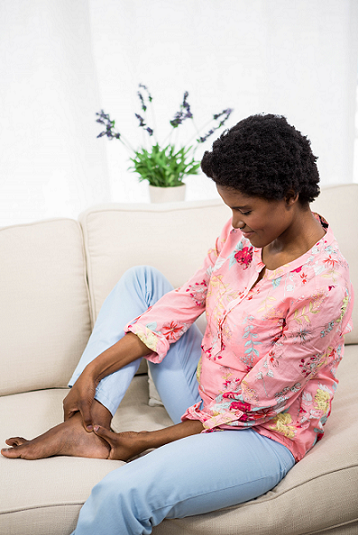
Pain from foot disorders such as bunions, corns, or calluses can really damper the day. Not only that, Dr. James Toli, assistant professor of orthopedic surgery at Harvard Medical School says it can also adversely affect the gait. This could be a real safety concern for elderly folks with Alzheimer’s disease (AD) who are high risk for falls.
The comfort of one’s feet is important to staying active and safe. “As you age, healthy feet become even more important for staying mobile, active, and safe,” says Dr. Kevin Reimer, a podiatrist at Harvard-affiliated Beth Israel Deaconess Medical Center. “When it hurts to walk, you cut back on activities that you enjoy and that keep you healthy.”
Although some foot problems are a result of hereditary factors, there are a few simple things that can be done to improve or even correct foot pain. If the foot pain is not addressed promptly, it could lead to more complicated issues down the road.
Tips on Foot Care for Corns and calluses
A corn is a thickening of the skin usually on the bony portion of the toe. Corns develop because of friction, oftentimes from tight fitting shoes.
-Eliminate the source of friction by replacing ill-fitting shoes
-Use a pumice stone to remove calluses, here are the steps:
-Soak feet before going to bed for 15 minutes in water that is as warm as tolerated
-Use the pumice stone to gently massage the affected area for at least 5 minutes.
-Dry the feet
-Dip gauze or a cotton ball in sesame oil and leave it on the corn or callus overnight
If corns remain after implementing the steps above, be sure to make an appointment to see your physician or the podiatrist, particularly if your loved one has diabetes.
Tips on Foot Care for Bunions
Bunions are bumps on the side of the foot near the bottom of the big toe. They may be a hereditary problem caused by misalignment of the foot bones, or they could be caused (or exacerbated) by wearing shoes that have narrow toes resulting in bunching the toes together. Over time, cramping of the toes can result in the big toe leaning inward which changes the angle of the bones, producing the bunion.
Harvard Health provides these tips for bunions:
-Purchase wider toe shoes to reduce pressure and pain on the bunion
-Consider a rubber toe separator placed between the big toe and the 2nd toe
-Toe separators correct the curving inward of the big toe and alleviates building of the bunion
-If other measures are ineffective, surgical removal may be required
Tips on Foot Care for Plantar Fasciitis
Plantar fasciitis is a common cause of heel pain. It is caused by inflammation of the thick band of tissue on the bottom of the foot that connects the heel bone to the toes. It causes a stabbing type pain that oftentimes occurs in the morning upon rising but may occur with long periods of standing. Plantar fasciitis is caused by too much weight being supported by the feet (obesity), ill supporting shoes, and running.
Tips for foot care include:
-Rest and apply ice
-Use over the counter pain and anti-inflammatory medication (upon your physicians’ approval)
-Once the pain is not as severe, stretching exercises can help
-Purchase good supporting shoes.
Note, those with Alzheimer’s disease should always consult their physician before taking medications or performing any type of exercise.
CLICK HERE to learn more about how to access our 25 lesson free course on Alzheimer’s disease for caregivers at AlzU.org.
Learn about the 10 steps to buying the right shoes by CLICKING HERE to access the Harvard Health Report.






